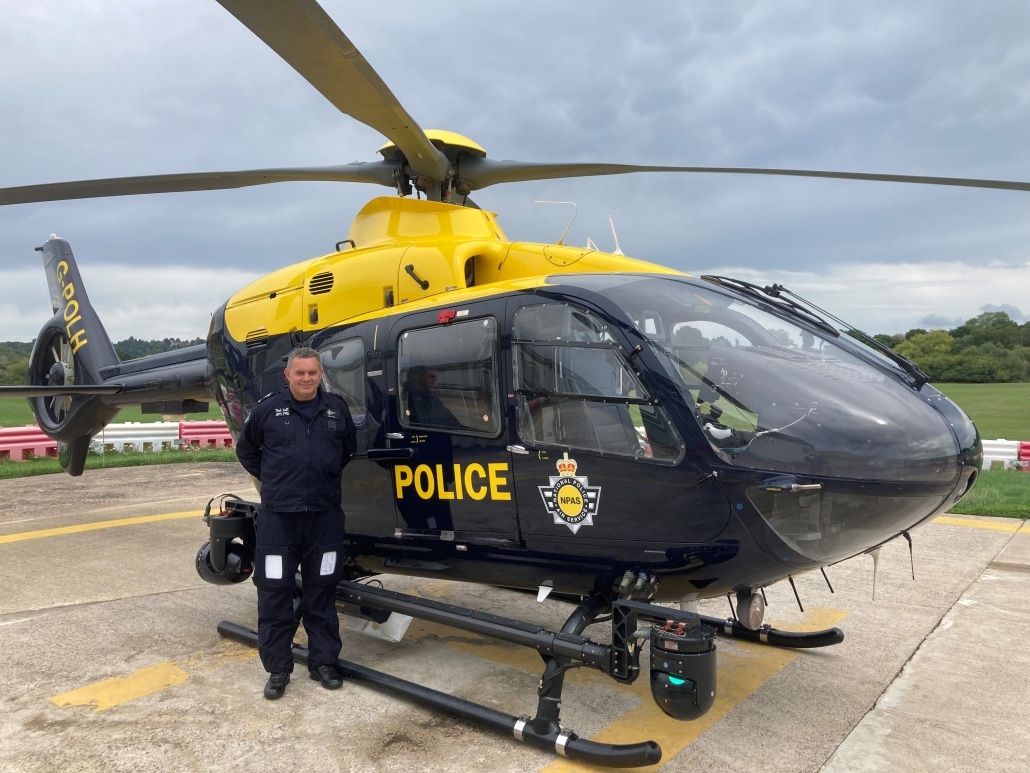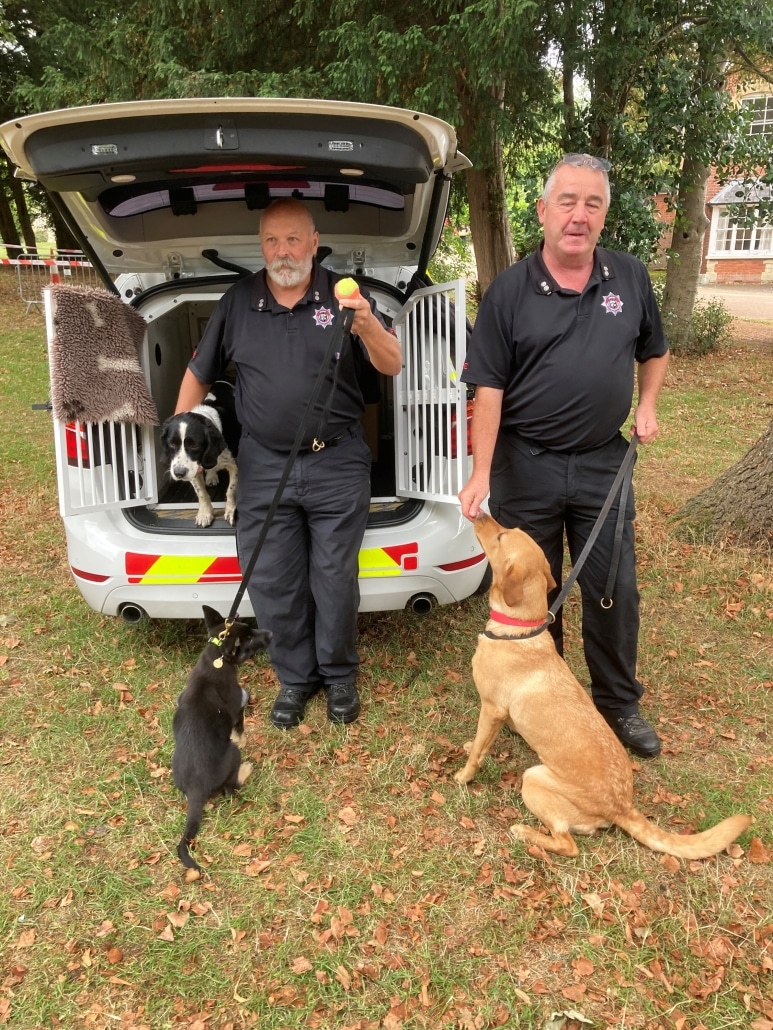A Morning Learning more about the Surrey Fire Service. An Afternoon Learning about the NPAS.
The sound of a fire engine is known well enough and also the vital and often dangerous work that firefighters do. But not many may appreciate that behind those speeding fire engines and the extinguishing of flames lies a great deal of logistics. The machines and all the equipment used by the teams attending a fire must always be in top condition. There can be no malfunctioning valves on breathing equipment, for example, no fault in a pump and no risk of an emergency vehicle not starting or breaking down. All of this became clear to me on 5th September as I talked to Rory Coulter the Head of Logistics at the Surrey Fire Service premises at Wray Park Road in Reigate. I was shown the workshop where repairs were being carried out to vehicles, including a massive off-road fire engine which had been in heavy demand at the recent fires on the county’s heathlands. The parts store is a key place and everything must be there for the engineers and mechanics to use so that no equipment is out of action a moment longer than necessary. All repairs are carried out on site. However, it’s not always easy to obtain parts, given the European manufacture of most vital vehicles. Rory has a very important job and I am grateful to him for the time he spent showing me around, explaining the operational resources and answering my inevitable questions.
The visit also included my talking to Steve Smith, a Fire Investigator with many years experience. Given some fires are started deliberately, whether in the hope of fraudulent financial gain from an insurance policy, or maybe by another type of arson, or by a person acting irrationally or carelessly, this aspect of the Fire Service requires the latest equipment and technology in order to decide whether a fire was accidental or deliberate. Highly trained dogs are vital to this work. Their training was explained to me by two very experienced dog handlers – how an ordinary tennis ball coupled with Pavlovian responses will lead to the remarkable ability of the dogs to help the human fire investigators learn the truth about a suspicious fire. The dogs can tell not just that a room contains some petrol or accelerant, but all the places in the room where it has been spilt. That will help disprove a claim of an accidental single spillage.
In the afternoon I visited Redhill Aerodrome in order to meet Sergeant Paul Cole the base manager, who is a Surrey police officer seconded to the NPAS, the National Police Air Service. I also met his two colleagues, one of whom is the pilot of the helicopter I was shown. Their main tasks are searching for missing persons, finding suspects who are seeking to avoid arrest by hiding on the ground or assisting in the pursuit of suspects in cars. They can also be employed at large events with crowds of people. The noise of a helicopter apparently makes people realise they’re probably under observation. The helicopter has the latest technology, including high-powered cameras and thermal cameras, plus speakers and powerful lights. Often operating during the hours of darkness, it struck me that the NPAS helicopter is a most important aspect of efficient policing. Repairs are carried out at the base, where it has links to the NPAS HQ as well as to the control centres of the Police Forces of Kent and Sussex as well as Surrey. My thanks go to Sgt Cole and his team for their warm welcome and informative conversation.




